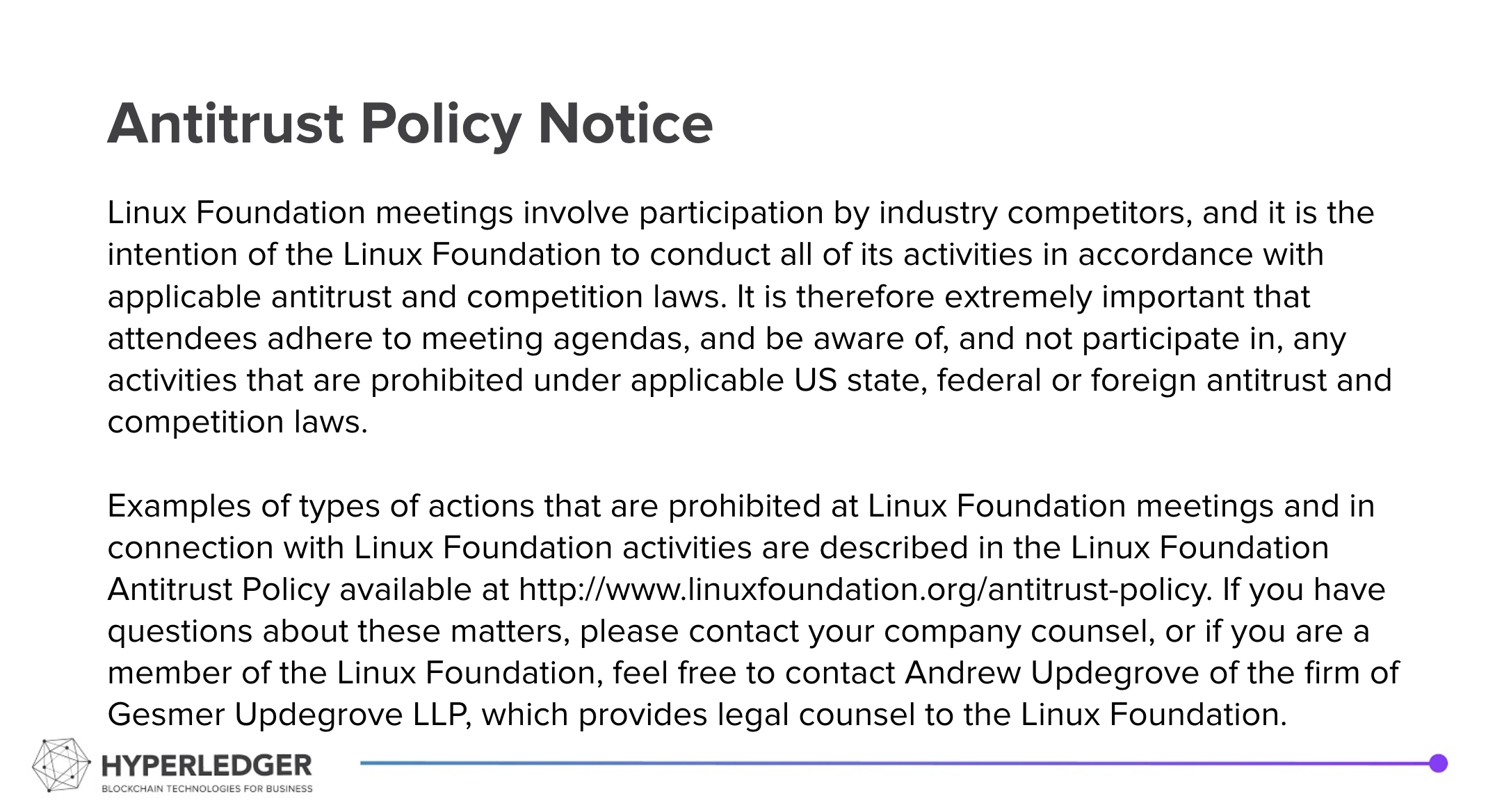Summary
- Indy VDR Progress
- Read Replicas (Sam Curren): https://hackmd.io/8FpR4QauRDyFXiKihBR_YA
- Indy Besu update
- New bug in Indy Plenum: https://github.com/hyperledger/indy-plenum/issues/1643
- Any updates on upgrade or documentation contributions
- Open Discussion
Zoom: https://zoom.us/j/93198495358?pwd=TS80VklHVElJS3lEcjUzQjV0VHVtUT09
Recording: 12052023 Indy Contributors Recording
Chat:
Hyperledger is committed to creating a safe and welcoming community for all. For more information please visit the Hyperledger Code of Conduct. |
|---|
Welcome and Introductions
Attendees
- Char Howland (Indicio, PBC) <char@indicio.tech>
- Renata Toktar (DSR Corporation) <renata.toktar@dsr-corporation.com>
- Lynn Gray Bendixsen (Indicio, PBC) <lynn@indicio.tech>
Related Calls and Announcements
Release Status and Work Updates
- Indy Node/plenum – PR needed to replace Ursa with the indy-blssignatures-rs implementation. Issue #
- Indy-test-automation
- Indy-Node test-automation integration next step after cleaning up the dependencies issues and getting the sovrin-test-automation finished.
- Indy SDK – to be deprecated
- Indy Monitoring - https://github.com/hyperledger/indy-node-monitor
- Indy Node Container - https://github.com/hyperledger/indy-node-container
- Indy/Aries Shared Libraries - Hyperledger (indy-vdr, indy-shared-rs, aries-askar, anoncreds-rs)
- Ursa
- Indy DID Method – https://hyperledger.github.io/indy-did-method/
- AnonCreds Specification: https://anoncreds-wg.github.io/anoncreds-spec/
Meeting Topics
- Indy VDR Progress
- Read replicas: https://hackmd.io/8FpR4QauRDyFXiKihBR_YA
- Indy Besu update
- New bug in Indy Plenum: https://github.com/hyperledger/indy-plenum/issues/1643
- Any updates on upgrade or documentation contributions
- Open Discussion
Future Calls
- GDPR and the right to be forgotten – mitigations and approaches.
- The Indy "Corporate Firewall Problem" and the idea of a Proxy Server on Nodes? Kim Ebert
- Core issue: A mobile wallet user using a Corporate WiFi may find that they can't get to an Indy ledger because all but 80/443 ports and HTTP/S protocols are blocked
- Discussion/Options paper: https://hackmd.io/@n5FW6jwuRfCgchBDNWR3VQ/H1kNlKpmo
- Question: Is it viable to have each Indy Node also listen on port 80/443 for HTTP/S requests and arrange to have them processed?
- Option: Receive on HTTP(S) and send on to local ZMQ instance as if coming from outside.
- Answer: We think it is probably not viable, as mobile agents require HTTPS. As such, each Steward would have to get a IP-based SSL Certificate. Technically doable, but getting everyone through that is really not practical. The cost of the certificates and maintaining them would be ugly.
- Option: Add a DIDComm agent to every node, and use DIDComm to send the messages
- Similar to using HTTP(S), but use a DIDComm message. Since Mobile Agents would be using a mediator, the DIDComm message would flow through that, and the HTTPS issue would not matter. This is almost easy, but... There is no encryption public key in the genesis file, so that needs to be retrieved from somewhere else...

